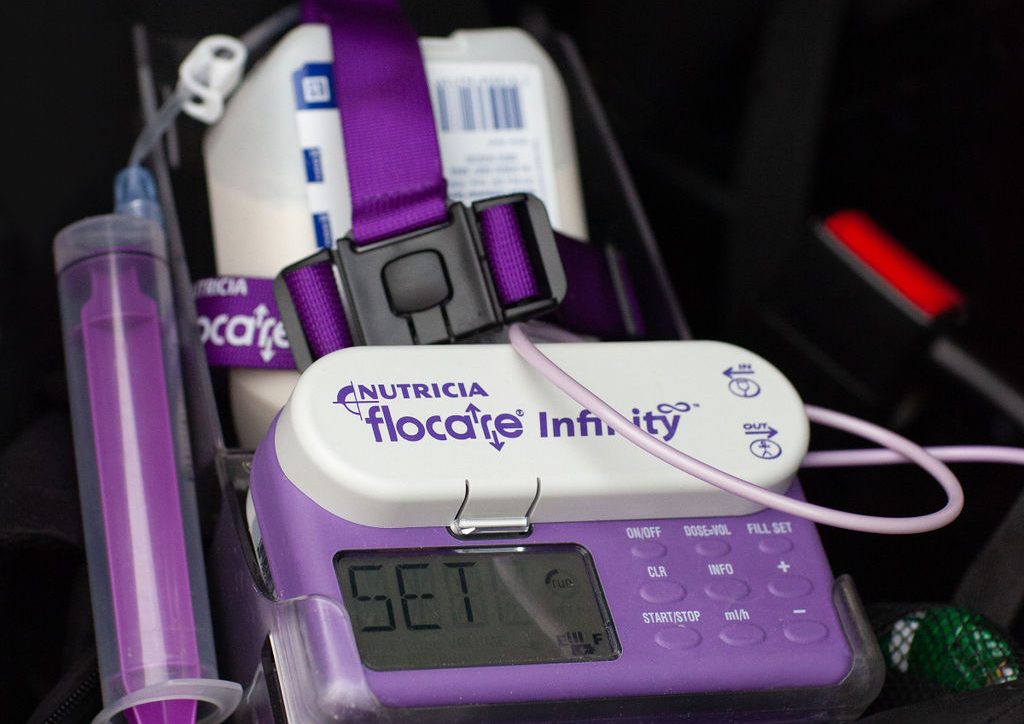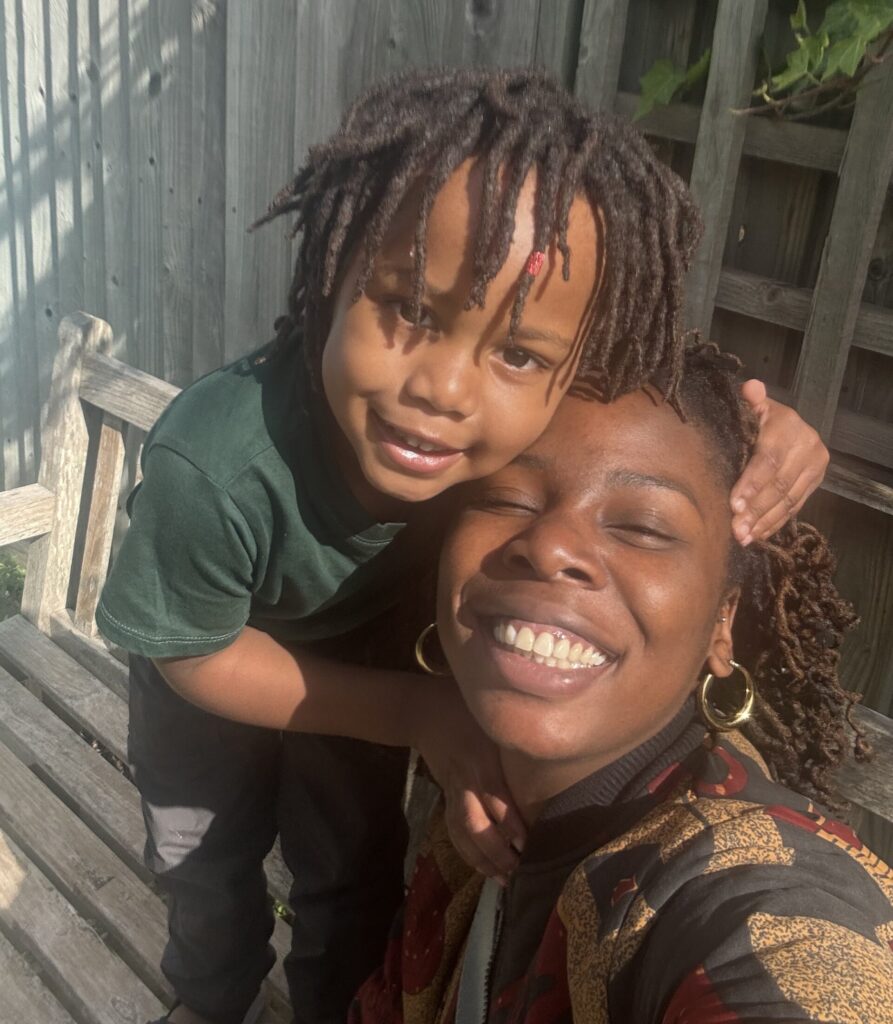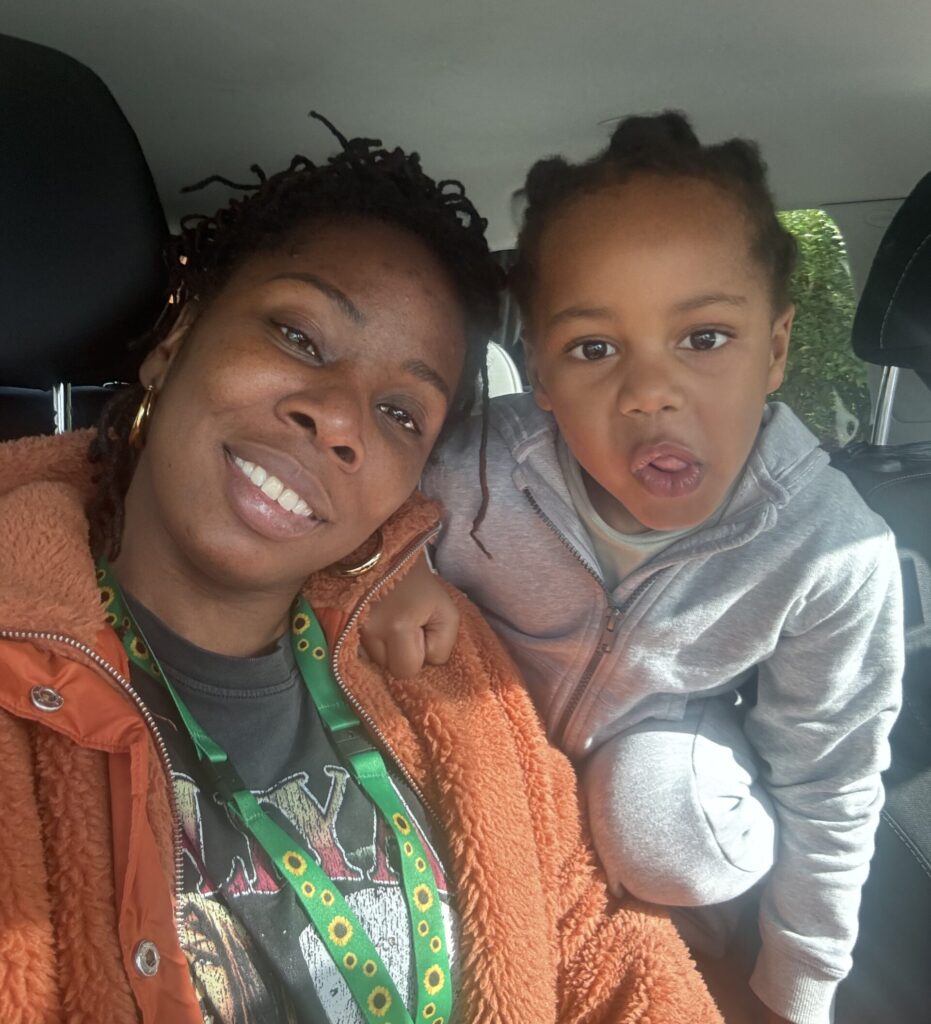First Presentation
Orion had his first seizure in 2020 at nine months old.
He had a cold, just a normal everyday cold. He’d woken up from a nap and he was in my arms, and he was jerking. In my panic, I recognized that it was a seizure, and I called an ambulance, and when it came, he was still seizing.
This had been going on for about 20 minutes, so the paramedic gave him a rectal medicine which stopped it. We were taken into the hospital and stayed there for almost a week. He had a lumbar puncture and a few other tests. He was also given a few different medicines as they thought the seizure may have been caused by things like meningitis. In the end they said it was possibly an atypical febrile seizure.
Two weeks later he had another seizure, this one was a lot shorter, and it resolved on its own. The hospital thought that it could have been another febrile seizure because he still had the cold, but they weren’t sure. They did mention epilepsy, but they weren’t sure.
He had no more seizures for another ten months, so we thought it was a one off. But in the next October had another seizure and it resolved on its own. After this, the seizure frequency increased, and he started having one every few weeks. They were all short seizures. We were really reluctant at that stage to even accept an epilepsy diagnosis, and we were exploring options to treat his seizures with homeopathy and ayuveda.
Of course, the pandemic was happening during that time, so it was all very charged. The whole world was already in fight or flight mode and then for him to start having seizures just brought another level of fear for me.
Gaining a diagnosis
Then in 2022, he caught a cold, and he had four seizures in one day and that’s when he was started on medication. They just thought it was ‘an epilepsy’ at that point.
When he was three, he was in intensive care after having a respiratory infection and his seizure went on for about half an hour. He was in intensive care for two days.
He had CT scans, EEG scans and an MRI scan, and everything came back normal and then we had genetic testing, but it took a year to get the results, so finally, in January 2024 we were told that he had the SCN1A gene mutation. But it wasn’t until June 2024, after they’d done more research that they gave us “emerging” Dravet Syndrome diagnosis.
After this, he had a few prolonged seizures and different types of seizures. Orion has probably had around three different seizure types but there are so many different types, and it can get very scary because you don’t understand exactly what is happening and you feel very helpless. I just want to do something to help the situation in the best way possible and I didn’t feel like I could help my child. That really messed with me mentally and plagued my feelings around motherhood.
It’s hard because I’m always on high alert looking for the signs of seizures. After the seizures have calmed down and he’s sleeping, that’s when I tend to catch my breath and have a little cry, but to be honest, I’m usually still in some kind of state of shock for a few days even though he bounces back to his normal self once he has recovered. I still do all the things that I need to do for him but internally, my whole nervous system is still very shaken, and I just want to keep him safe.

DSUK's Seizure Monitor Fund
As anyone who cares for a child or adult with Dravet Syndrome knows, seizure monitoring can save lives. Unfortunately, the most effective monitors are expensive. We have been running our Seizure Monitor Fund since 2009 to provide access to monitors for all families who need them.
Triggers for Orion’s seizures
Over excitement can be a trigger. Which is hard because he is a child and gets excited about everything as he should! Over-heating if he has a fever is also a huge trigger, so I really work on building his immune system to protect him against bugs and viruses. But there’s not always a trigger for his seizures, it can be out of the blue. It’s all about the electrical activity in his brain.
I have taught him some breathing techniques for when he starts to feel lots of excitement. We practice these often throughout the day and we do them before he says his prayers during bedtime.
Life Today
At the moment, Orion has just been diagnosed with emerging Dravet Syndrome and a language development disorder. He’s not got an autism diagnosis, he has traits, but they said not enough for a diagnosis.
A lot of the behavioural traits of Dravet Syndrome are similar to autism. I suspect that he may have ADHD, but he won’t be due another assessment for a little while yet. In terms of his language development, he can communicate very well but there a few noticeable characteristics with how he processes language.
The medicines and medical keto diet that Orion is on have been such a huge factor in helping us on this journey. It’s really made a difference to our lives and given us a sense of freedom that we didn’t have before. Sometimes it’s felt like we have been trapped behind the bars of epilepsy and Dravet, so I’m really grateful that we have been given access to the medicines that have had a great positive impact.
We continue to have a holistic approach to supporting our bodies both internally and externally and do things so that everything can work in the best harmony possible.
Supporting DSUK
I’m taking part in the #EveryDayinMayFor Dravet challenge because I want to be part of something that raises awareness and money for Dravet Syndrome UK. People don’t know about it, so I want to get word out about it.
It can feel so isolating going through this and I wanted to connect more with the Dravet community. I wanted to do more within the community, because going through this journey, it’s really shaken my sense of security and safety, it makes you constantly vigilant and in survival mode and we need to feel safe again and we need to be around people that can help us to do that. And I think there is so much safety found in people going through similar things as you. You feel like your story is validated.
"I think there is definitely a lack of awareness and a sense of naivety when it comes to Dravet Syndrome and many other different types of epilepsy. Just because people who experience it appear to sometimes “bounce back to their normal selves” after a seizure, it doesn’t mean that they don’t need support, because there are many other ways that epilepsy can affect their lives. There are risk factors to consider and also education and support needed for their peers and carers so that they can best support the person."Reniece, mum to Orion
A sweet boy, full of joy

I’m trying to celebrate all the things that he can do and find a balance so that he experiences a good quality of life. He loves nature, he loves making friends, he likes climbing. He likes animals, we go to London city airport sometimes to watch the planes, and we have lots of fun days out together. He is very uniting and very sweet. He has a lot of energy. I tend to avoid birthday parties due to all the excitement but slowly, we are exposing him to more of these fun things to do. He deserves to experience joy.
Orion is so sweet and full of joy. He has shown so much strength and resilience that it inspires me to be brave too. He really is my hero.

